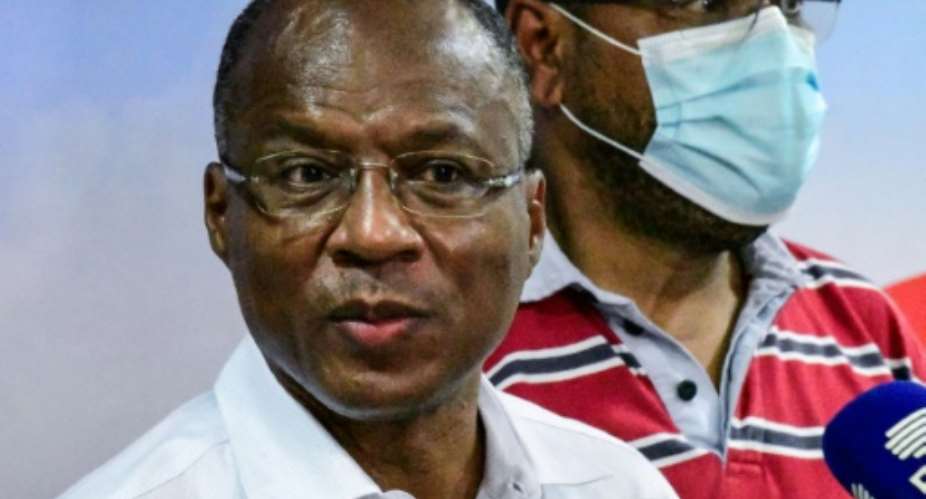Cape Verde's electoral commission published the full results of an April 18 parliamentary poll on Wednesday, certifying a majority for the ruling party in the West African archipelago nation.
Prime Minister Ulisses Correia e Silva's Movement for Democracy (MpD) won 38 out of 72 seats in the national assembly, giving the party an absolute majority, according to the commission.
The 58-year-old had already claimed victory on the evening of the election after results showed that his party had won 36 seats.
However the publication of the full results was delayed for over a week while counting continued for two seats representing Cape Verdeans living abroad.
Centre-right MpD won one of those seats. Its main contender, the socialist African Party for the Independence of Cape Verde (PAICV), won the other -- giving it a total of 30 seats.
A tiny archipelago of 550,000 people lying around 600 kilometres (375 miles) off the coast of Senegal, Cape Verde is hailed as a bastion of democracy in Africa.
In 1990, one-party rule in the former Portuguese colony was swept away, leading to the first multi-party elections the following year.
In 2016, the MpD ended the PAICV's 15-year run with a historic victory, gaining 40 seats in the single-chamber national assembly.
PAICV leader Janira Hopffer Almada, 42, had hoped to reverse her party's fortunes this year and become the country's first woman prime minister, but conceded defeat on April 18.
Cape Verde has a semi-parliamentary system in which the prime minister wields executive power while the president plays the part of arbitrator in the event of intractable disputes.
In a continent marked by political unrest, coups or monolithic rulers who have been in power for decades, the tiny Atlantic archipelago stands out.
It ranks just behind Mauritius as the most democratic country in sub-Saharan Africa in the Economist Intelligence Unit's 2020 Democracy Index.
The coronavirus pandemic has battered the country's economy, however, which relies heavily on tourism.





 Lay KPMG audit report on SML-GRA contract before Parliament – Isaac Adongo tells...
Lay KPMG audit report on SML-GRA contract before Parliament – Isaac Adongo tells...
 Supervisor remanded for stabbing businessman with broken bottle and screwdriver
Supervisor remanded for stabbing businessman with broken bottle and screwdriver
 NDC watching EC and NPP closely on Returning Officer recruitment — Omane Boamah
NDC watching EC and NPP closely on Returning Officer recruitment — Omane Boamah
 Your decision to contest for president again is pathetic – Annoh-Dompreh blasts ...
Your decision to contest for president again is pathetic – Annoh-Dompreh blasts ...
 Election 2024: Security agencies ready to keep peace and secure the country — IG...
Election 2024: Security agencies ready to keep peace and secure the country — IG...
 People no longer place value in public basic schools; new uniforms, painting wil...
People no longer place value in public basic schools; new uniforms, painting wil...
 'Comedian' Paul Adom Otchere needs help – Sulemana Braimah
'Comedian' Paul Adom Otchere needs help – Sulemana Braimah
 Ejisu by-election: Only 33% of voters can be swayed by inducement — Global InfoA...
Ejisu by-election: Only 33% of voters can be swayed by inducement — Global InfoA...
 Minority will expose the beneficial owners of SML, recover funds paid to company...
Minority will expose the beneficial owners of SML, recover funds paid to company...
 Prof. Opoku-Agyemang has ‘decapitated’ the NPP’s strategies; don’t take them ser...
Prof. Opoku-Agyemang has ‘decapitated’ the NPP’s strategies; don’t take them ser...
